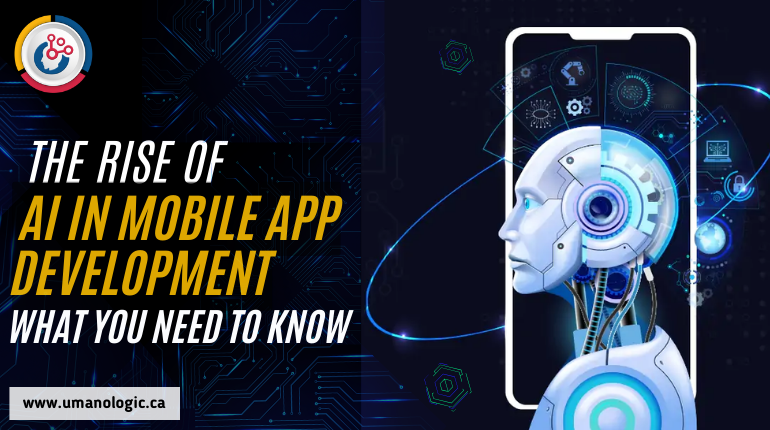Artificial intelligence (AI) is changing the world, and mobile app development is no exception. In simple terms, AI is a technology that allows machines to think and learn like humans. It’s the reason why your phone can recognise your face, suggest the next word when you type, or even help you find the fastest route home. Let’s dive into how AI is shaping mobile app development and what you need to know about it.
What is AI in Mobile Apps?
AI in mobile apps means using smart technology to make apps more helpful, personalized, and easy to use. This includes things like:
- Voice Assistants: Siri, Google Assistant, and Alexa can understand your voice commands and perform tasks for you.
- Chatbots: These are like virtual helpers that can answer your questions and provide support.
- Recommendation Systems: Apps like Netflix and Spotify suggest movies or songs you might like based on your past choices.
Why is AI Important in Mobile Apps?
- Better User Experience: AI makes apps more intuitive and easier to use. For example, AI can help apps understand what you need and offer it before you even ask.
- Personalization: AI helps apps tailor content to each user. This means you get more relevant information, like personalized news feeds, shopping recommendations, or fitness plans.
- Efficiency: AI can automate tasks, saving time and effort. For instance, AI-powered apps can scan documents, translate languages, or schedule appointments quickly and accurately.
Key AI Technologies in Mobile App Development
- Machine Learning (ML): This is a type of AI that allows apps to learn from data. For example, email apps use ML to filter spam or sort emails by importance.
- Natural Language Processing (NLP): This helps apps understand and respond to human language. Chatbots and virtual assistants rely heavily on NLP.
- Computer Vision: This allows apps to understand images and videos. Apps like Instagram use computer vision to identify faces and objects in photos.
Examples of AI in Mobile Apps
- Google Maps: Uses AI to suggest the best routes and predict traffic conditions.
- Shazam: Identifies songs playing around you using audio recognition.
- Duolingo: Uses AI to customize language lessons based on your learning pace and style.
Challenges of Using AI in Mobile Apps
- Data Privacy: AI needs data to learn, which raises concerns about how user data is collected and used.
- Complexity: Developing AI features requires specialized skills and can be time-consuming and expensive.
- Accuracy: AI systems are not always perfect and can make mistakes, which can affect user trust.
The Future of AI in Mobile App Development
The future of AI in mobile app development looks promising. As AI technology continues to evolve, we can expect even smarter apps that can do more for us. For instance:
- Enhanced Personalization: Apps will become even better at predicting user needs and preferences.
- Improved Automation: More tasks will be automated, making life easier for users.
- Greater Accessibility: AI will help make apps more accessible to people with disabilities.
Conclusion
AI is revolutionizing mobile app development, making apps smarter, more efficient, and more personalized. As AI technology advances, we can look forward to even more innovative and helpful apps in the future. Understanding the basics of AI and its impact on mobile apps can help you appreciate the technology behind the apps you use every day. For innovative solutions, consider partnering with a mobile app development company in Edmonton. Contact Umano Logic to bring your app ideas to life.
Get in touch with us for more!
Call:- +1 (780)- 993-6637
Email us at:- sales@umanologic.ca
Visit our website: https://www.umanologic.ca
 :
https://www.umanologic.ca/
:
https://www.umanologic.ca/












